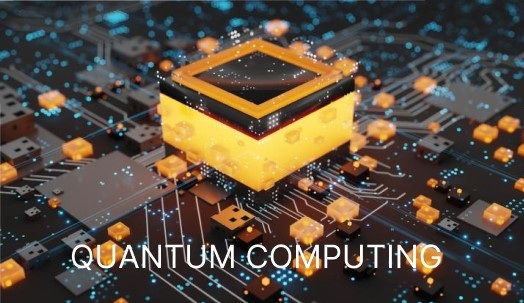Maryland Positioned to Capitalize on Projected $20 Billion Quantum Computing Market Growth

Summary
Full Article
The quantum computing market is projected to experience substantial growth, expanding from approximately $3.5 billion in 2025 to over $20 billion by 2030, representing a remarkable 41.8% compound annual growth rate according to MarketsandMarkets analysis. This projection aligns with broader industry assessments, including McKinsey's forecast that the quantum technology market could reach $100 billion by 2035, with quantum computing specifically generating between $28 billion and $72 billion in revenue. The growth is driven by hardware and software advancements and increased cloud-based access, with key applications emerging in chemicals, life sciences, finance, and mobility sectors where quantum-powered optimization, simulation, and machine learning promise transformative breakthroughs.
Maryland stands to benefit significantly from this quantum computing expansion through strategic partnerships and investments. Microsoft's collaboration with the University of Maryland's Quantum Research Center and the presence of College Park-based IonQ create a strong foundation for regional quantum development. The state's proximity to defense research initiatives, including Darpa's Underexplored Systems for Utility-Scale Quantum Computing program, further enhances Maryland's position in the quantum ecosystem. Amazon's federal projects through its Quantum Embark program and defense partnerships demonstrate the commercial and government interest converging in quantum technology development.
IonQ, founded in 2015 by University of Maryland's Chris Monroe and Duke University's Jungsang Kim with initial $2 million seed funding from New Enterprise Associates, has grown into a significant quantum hardware company. The company secured approximately $75 million in additional funding from investors including Google's venture arm GV, Amazon Web Services, and NEA, followed by a 2021 initial public offering and recent $2 billion share sale. Under CEO Niccolo de Masi, a former JPMorgan and Siemens executive with physics degrees from Cambridge University, IonQ has established multiple government partnerships including Department of Energy collaborations on space-based quantum networks, selection for Darpa's Quantum Benchmarking Initiative, and contracts with the U.S. Air Force Research Laboratory and Applied Research Laboratory for Intelligence and Security.
The company's international presence includes national quantum-safe networks in Singapore and South Korea, European Union quantum communications infrastructure initiatives, and a $22 million agreement with EPB in Chattanooga, Tennessee to establish the United States' first quantum computing and networking hub. IonQ's quantum technologies are accessible through cloud partnerships with Microsoft and Amazon Web Services at https://aws.amazon.com/braket/.
Microsoft's establishment of a quantum research center within the University of Maryland's Discovery District represents another significant advancement for Maryland's quantum ambitions. The collaboration between Microsoft, University of Maryland Enterprise Corporation, and the state government supports Maryland's "Capital of Quantum" initiative aimed at positioning the region as a global quantum technology leader. The research center will feature Microsoft's topological quantum computer prototype utilizing the Majorana 1 quantum chip, designed to improve error resistance in quantum systems. The center's strategic location near Darpa facilitates direct collaboration and testing capabilities for defense quantum programs.
Maryland Governor Wes Moore's "Capital of Quantum" initiative seeks to catalyze over $1 billion in investments through public-private partnerships. The program includes initial state funding of $27.5 million, later expanded to $52.5 million, with additional commitments projected in the state's 2026 budget. These resources support quantum infrastructure development, including a planned $244 million facility at the University of Maryland featuring advanced quantum laboratories. The initiative also encourages quantum technology company growth, exemplified by IonQ's planned headquarters expansion within the Discovery District, expected to generate high-paying employment opportunities across multiple disciplines and strengthen Maryland's position in the emerging quantum economy.

This story is based on an article that was registered on the blockchain. The original source content used for this article is located at citybiz
Article Control ID: 256278